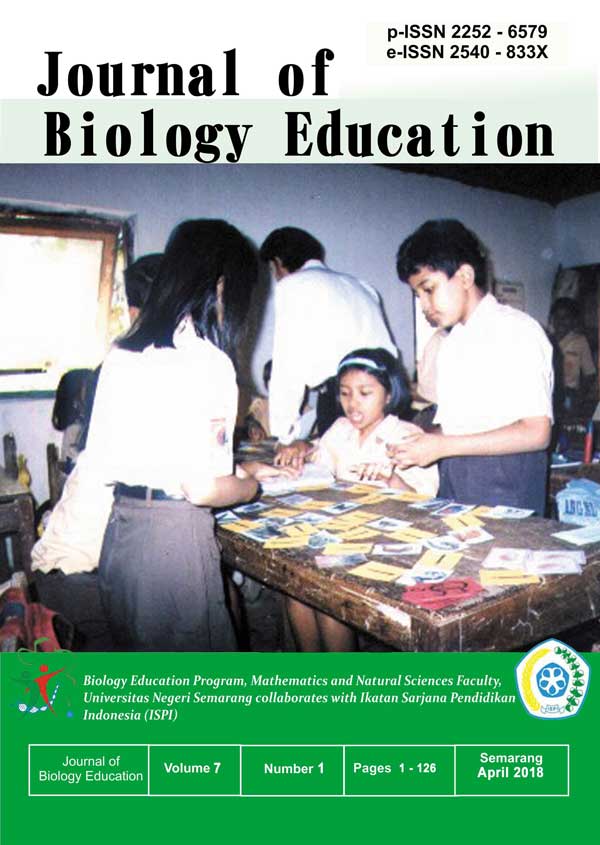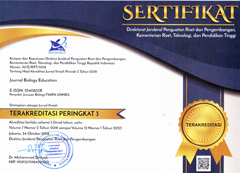Bioedutainment Strategy with Role Playing in Neural System Learning
Abstract
This research aims to identify the activities, study results, attitudes and relationships of study results with students' attitudes on the application of bioedutainment strategies with the role playing material of the nervous system. This research uses pre-experimental design design with one group pretest-posttest design. The population in this research is all students of class XI IPA SMA Negeri 7 Semarang with two classes as a sample determined by purposive sampling. The independent variable is a bioedutainment strategy with role playing. The dependent variable is activity, study result, and attitude. Control variables include teachers, lesson hours, curriculum, and face-to-face time. Student activity is analyzed descriptively percentage. Study results were analyzed with N-gain and quantitative. Attitudes are analyzed descriptively percentage. Student activities show average is active criteria (77%). Study results achieve classical mastery (86.5%). The mean N-gain of students in both classes included moderate criteria (0.44 and 0.40). Students' attitudes toward psychotropic and addictive abuse show very high criteria (92% and 86%). Study results with attitudes toward psychotropic abuse and addictive substances have strong correlations (0.705 and 0.610). Teachers and students respond positively and well. Conclusion: bioedutainment strategy with role playing has a positive effect on the activity, study results and attitudes of students and there is a significant relationship between study results and student attitudes.
The copyright of the article once it is accepted for publication shall be assigned to the journal as the publisher. The intended copyright includes the right to publish the article in various forms (including reprints). The journal maintains the publishing rights to the published articles.
This work is licensed under a Creative Commons Attribution 4.0 International License.








